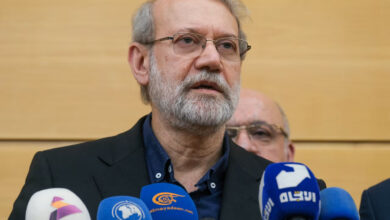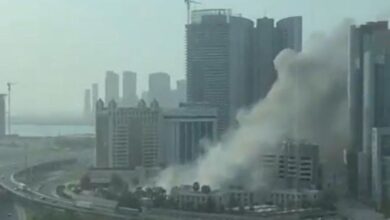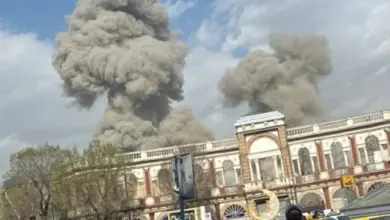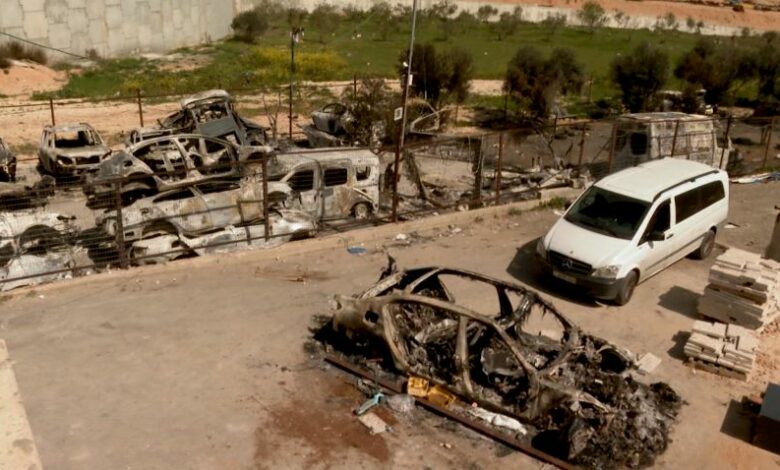
Shattered glass still litters people’s property. A ten-year-old child brandishes a spent Israeli military stun grenade, explaining he knows it’s safe because the string that activates it is gone.
The gray and black carcasses of burnt out cars serve as a grotesque reminder of the worst Israeli settler violence these Palestinian villagers say they’ve ever experienced.
The town, just south of Nablus in the occupied West Bank, has long been a flashpoint for Israeli-Palestinian violence. Part of the reason is that it straddles one of the main roadways, route 60, that Israeli settlers and Palestinians alike use. It’s also surrounded on three sides by Israeli Jewish settlements that have a reputation for being extremely nationalistic.
It’s here that two Israeli brothers were shot and killed at point blank range on Sunday while they sat in traffic. The person or persons responsible have yet to be found.
It’s here that, hours later, dozens of settlers went on a rampage that one of Israel’s top military generals later called a “pogrom,” leading to the death of one Palestinian man and other injuries.
Huwara resident Nahawand Damidi’s house is behind a metal fence, for protection against settler attacks. But Sunday night the violence reached another level, she told CNN on Thursday.
“[The settlers] usually attack us by throwing stones. If we try to defend ourselves they will use weapons, but last time was different. Wherever you looked there were bullets … fires, fires everywhere,” she said, standing on her balcony.
Security camera footage residents shared with CNN show settlers – identified by their religious tassels, called tzitzit, hanging from under their sweatshirts – piling flammable material in front of 75-year-old Nawal Dumeidi’s door, before setting it aflame.
The double door is marred with black scar marks from the flames that literally melted the lock, Dumeidi said. Her two sons had to come back from Dubai to force open the door and free her, she told CNN.
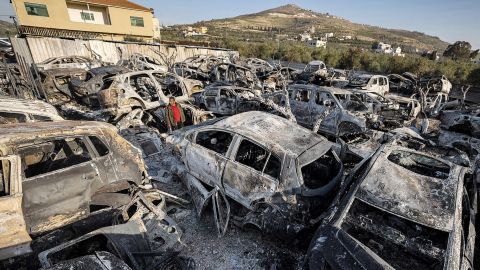
“What happened is a wild terrorism,” she said, adding she was stuck in her home for three days before she was able to leave.
Villagers told CNN that they would normally expect the Israeli military to protect them from settler attacks but that on Sunday they did not. The top Israeli general in the West Bank, Major General Yehuda Fuchs, admitted earlier this week the IDF was unprepared for the scale of the settler violence against Palestinians and took responsibility for not controlling it.
“We will wipe out Huwara”
Many Israelis go to Huwara to get their cars repaired – with prices being much cheaper than on the other side of the Green Line. The Abu Saris family owns one of those repair shops – but dozen of cars on their lot are now burnt.
Daughter Lamar, 10, speaks confidently and openly about what happened – she’s given several media interviews already.
But she also no longer wants to sleep in her room. Her window was broken when settlers threw stones at it.
“Mom hid us in our room and went to the rooftop to see what’s happening. We heard them breaking the windows of the house. We didn’t do anything to them,” she says, her seven-year-old brother Joud and two-year-old sister Siwar sitting beside her.
Siwar, wearing a yellow Pokemon onesie, whispers “Beep, fire” after she hears a noise outside.
“The biggest crime they did to us is not the business and the cars, but our terrified and traumatized children,” their mother Hana says. “Look at [Siwar], she’s terrified only from hearing a random sound downstairs.”
Hana says as the settlers burned the cars in their lot and shot three bullets toward the home, they screamed “death to Arabs, we will wipe out Huwara.”
Three days after settlers tried to do exactly that, far-right Israeli Finance Minister Bezalel Smotrich, himself a settler leader, repeated the phrase on stage at a media conference.
“I think the village of Huwara needs to be erased,” he told a reporter at a conference run by the Israeli business magazine The Marker. “I think the State of Israel needs to do this, and not – God forbid – private citizens.”
The incendiary remarks drew a harsh and swift rebuke from the US State Department, which dubbed them “repugnant” and “disgusting.” Even Israel’s Ambassador to the US Michael Herzog called it “against our values.”
And though Israeli Prime Minister Benjamin Netanyahu said he doesn’t accept such violence and called on Israelis not to take the law “into their own hands” in the wake of the rampage, he has yet to denounce Smotrich’s comments.
Israeli support
Many Israelis are disgusted by the violence in Huwara, seeing it as a natural ramification of the most right-wing and pro-settler government in Israeli history.
On Friday, Israeli soldiers intervened in Huwara to prevent dozens of Israelis from demonstrating in support of the villagers.
The town has been deemed a closed military zone in the wake of the violence, specifically with the aim of keeping the sides apart and de-escalating the situation.
Meanwhile, a campaign started by left-wing activist Yair “Yaya” Fink to raise funds for the residents has collected more than 1.7 million shekels (nearly $500,000).
“As a religious person, a Zionist, a major [in the military] and as a person, I cannot be silent while my peers are burning villages,” Fink tweeted the day after the rampage.
Fink says he’s received death threats and spam calls and texts because of his campaign. But he tweeted he’ll keep going: “Whoever thinks that this or the threats on my life will break me doesn’t know me, just another motivation to fight against the terrorist anarchists.”
And Huwara has even become a rallying cry during the protests against the Israeli government’s sweeping judicial reforms. On Wednesday as border police clashed with protesters in Tel Aviv, many chanted “Where were you in Huwara?”


